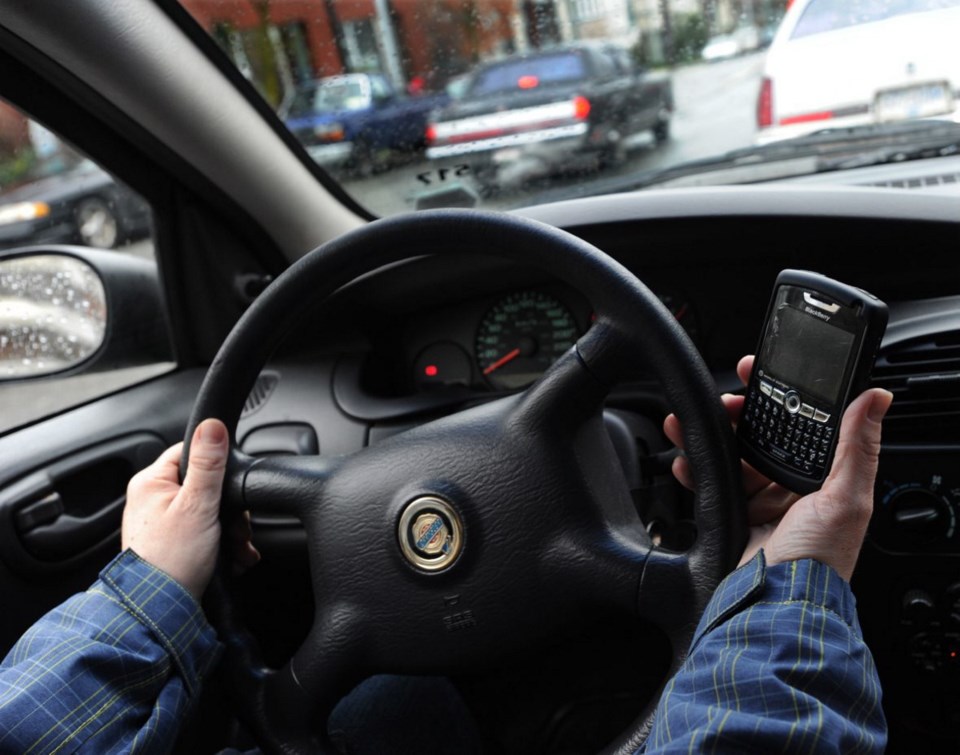VANCOUVER — The offence of distracted driving is not limited to a driver holding a cellphone in their hands while behind the wheel, B.C.’s highest court has ruled.
The court made the finding after rejecting the appeal of a man who had been issued a ticket under the Motor Vehicle Act for using an electronic device while driving.
The ticket was issued on March 15, 2019, while Zahir Rajani was stopped at a red light at West 70th and Granville in Vancouver.
A police officer who was conducting what he referred to as a “cellphone set-up” at that location observed Rajani looking down in his vehicle.
When the officer approached the vehicle, he said he saw a cellphone connected to a cord face-up in Rajani’s lap.
Rajani, who disputed the ticket in traffic court, agreed that he had been looking down when the officer first saw him, but testified that the phone was wedged between his right thigh and the car seat, facing up.
On Sept. 10, 2019, the judicial justice hearing the case upheld the ticket and handed Rajani a $300 fine.
The ruling said the phone’s precise location made no difference because it was a potential distraction and was in use because it was being charged.
Rajani appealed the case to the B.C. Supreme Court, arguing the ticket was invalid because he hadn’t been holding the cellphone in his hands.
The court found that there were several legal errors made, including that the mere presence of an electronic device in a vehicle constituted a distraction.
But it upheld the ticket after concluding that Rajani’s phone was being supported in a way that permitted its use.
A driver did not need to be holding the phone in their hands to be in violation of the law. Drivers operating their vehicles with electronic devices in their laps, between their thighs, tucked under their arms or chins, or supported by other parts of their bodies could also run afoul of the law.
Rajani appealed the B.C. Supreme Court ruling, arguing that the law does not apply to a cellphone wedged between a driver’s leg and the seat when the screen is not illuminated, but in a ruling released Tuesday, a three-judge panel of the B.C. Court of Appeal rejected that argument.
The court found that the case against Rajani was “overwhelming” and his conviction was inevitable based on either his or the officer’s account of the facts.
In a statement, Farouk Jiwa, Rajani’s lawyer, said his client was “disappointed” in the ruling, but glad that there is now clarity from the Court of Appeal on the issue given inconsistent decisions by judges in the past. He said Rajani has no plans to appeal.



